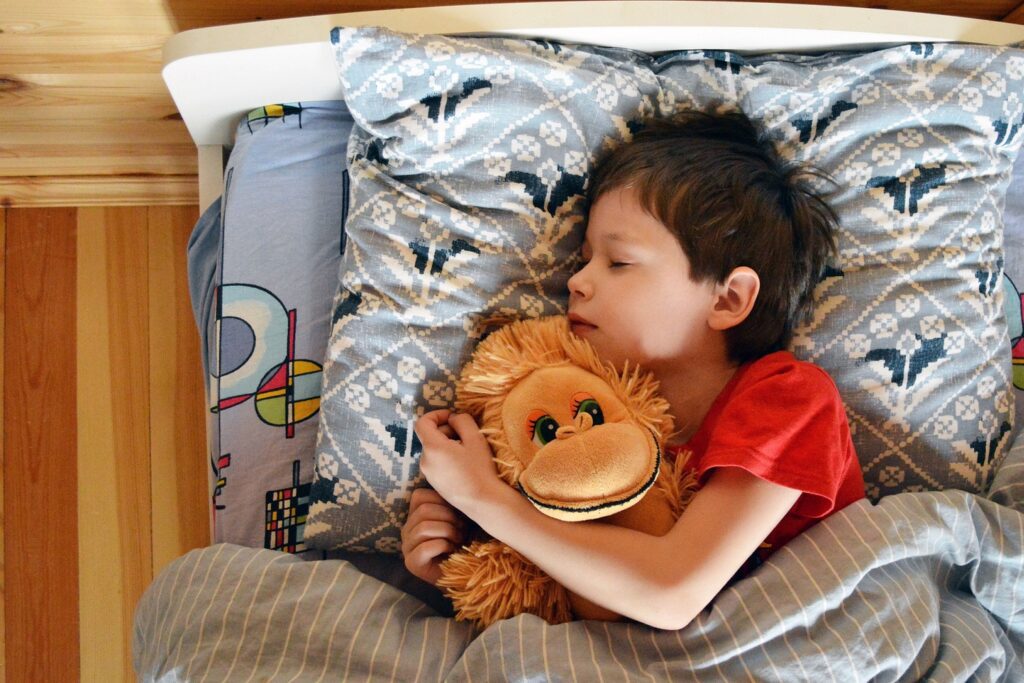Can I Foster Without a Spare Room?
Date published
10 May 2021

When applying to become a foster carer, you must demonstrate that you can provide a suitable environment for vulnerable children. In part, this means giving them enough space to feel safe and honouring their need for privacy, security and individuality.
What constitutes enough space? In short, every foster child needs their own bedroom.
Keep reading as we answer your most pressing questions about room requirements.
At Olive Branch, we require our foster carers to have at least one spare bedroom for several reasons that we’ll explore in more detail later.
While there isn’t a specific law to prevent fostering without a spare room, most agencies, including Olive Branch fostering, won’t accept applications from carers who can’t meet the basic space requirements outlined by the National Minimum Standards for Fostering Services 2011.
To meet the standards outlined by the report, you must have a spare room for foster children who stay with you overnight. It emphasises that children need enough privacy, security and space to feel safe and properly settle into their new home.
In short, foster children should always have their own bedroom. The only exception is babies who can usually share a carer’s room until they’re 12 to 18 months old.
Some foster siblings of the same gender may share a room subject to local authority approval (bedrooms must be large enough to accommodate each child comfortably), but this is something we aim to avoid if at all possible.
If you have children of your own, they can share a bedroom with birth siblings, but not with foster children.
Spare bedrooms need to meet minimum size criteria for fostering. They should be spacious enough to fit a single bed, small desk for homework and chest of drawers. Ideally, there will be plenty of floor space for children to play and wind down.
Perhaps most importantly, rooms need to feel homey rather than an afterthought, with natural light, snug furnishings and up-to-date decor.
We recommend collaborating with your foster child to create a space that reflects their personality and interests. Decorating together can be a powerful bonding activity that establishes trust from the offset. When children see you going above and beyond to make them feel welcome, the transition period becomes much smoother.
There are plenty of reasons why foster children need their own space. Alongside safeguarding, bedrooms provide a haven for reflection and restoration. When life feels particularly chaotic, having somewhere to retreat to offers children some much-needed headspace. Let’s take a look at three benefits in more detail.
Safeguarding denotes the measures taken to protect a person’s health, wellbeing and human rights. When it comes to fostering, safeguarding includes promoting children’s emotional and physical welfare by giving them enough space for play and restoration.
A designated bedroom can help foster children sleep better and feel more relaxed in their new home. When they’re overwhelmed, it gives them a place to breathe and process their thoughts.
With space to call their own, they’ll experience less stress, anxiety and depression, that could put them in jeopardy or limit their development moving forward.
Can you imagine how frightening it would be to share a bedroom with a stranger, especially if you’ve been abused or neglected in the past? It’s not fair to expect foster children to feel comfortable with that living arrangement, regardless of whether birth siblings happily share space.
It comes back to safeguarding – every child has a fundamental right to privacy, security and safety.
Many foster children come from chaotic backgrounds where they haven’t had a bedroom to themselves. Consequently, they may not understand the need for physical boundaries or quiet time.
Providing foster children with a bedroom gives them the private space they need to adjust to new rules and routines. It also teaches them that it’s healthy to spend time by themselves for contemplation and recreation. If children share bedrooms, they never get that quality time alone with their thoughts, meaning it may take them longer to adjust to their new living arrangements.
What’s more, having a bedroom to keep tidy teaches children about responsibility and independence. If they learn to take control of their space, they’ll better manage schoolwork and chores around the house.
At Olive Branch Fostering, we prioritise the needs of children in care alongside the wellbeing of foster families.
To meet the minimum standards outlined by the National Minimum Standards for Fostering Services 2011, you must have a spare room to be able to foster. This benefits children and carers, who both receive the privacy they need to adapt to their new living arrangements.
To begin your fostering journey, contact our friendly team or call us on 01706 558910. We’re always happy to talk through your queries and provide more information (there’s no obligation to go any further). Then, when you’re ready to make an application, we’ll help you every step of the way.
Fostering insights
10 May 2021
Get in touch with us today
Contact us
